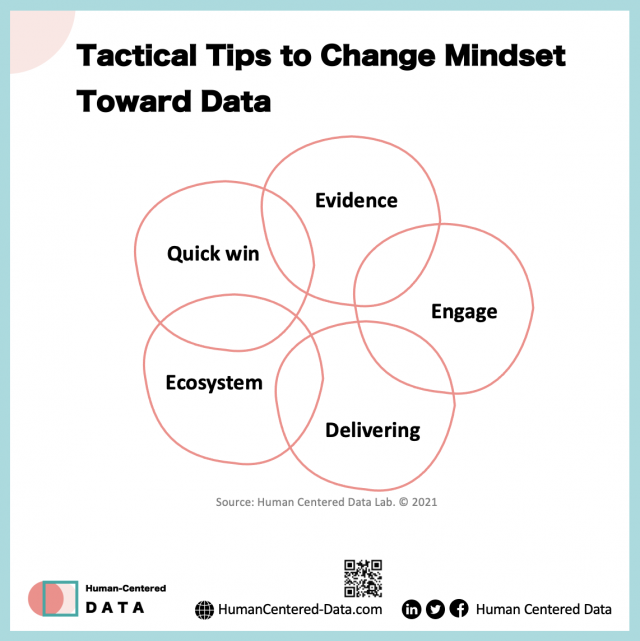The web is full of statistics about the importance of data and how data-driven companies perform better. For example, businesses that rely on data management tools to make decisions are 58% more likely to beat their revenue goals than non-data-driven companies, according to a Forrester Consulting survey of 900 global business leaders.
If you decided to be data-driven, what does that mean? Buying software? Training the staff for data analysis skills? Hire new talents? Researches show that data initiatives in companies still struggling.
What’s at the root of this slow progress? For the fifth consecutive year, a study about executives reports that cultural challenges — not technological ones — represent the biggest impediment around data initiatives. In the 2021 survey, 92.2% of mainstream companies report that they continue to struggle with cultural challenges. This represents an increase from an already high percentage of 80.9% of firms that named cultural challenges as the greatest impediment to success just four years ago.
In his recent Harvard Business Review article, “10 Steps to Creating a Data-Driven Culture,” David Waller writes, “The business obstacles to creating data-based businesses aren’t technical; they’re cultural.” Waller thinks that data-driven culture starts at the very top level. But I disagree with Waller, the top-level make decision, that’s true, but they don’t make a change, and cannot guarantee change.
In 2014, IBM reported that “over 95% of all [security] incidents investigated recognize ‘human error’ as a contributing factor”. So, change is not in systems and tools, rather change starts within individuals, the smallest cell of the company, and absolutely the most complex!
So, again, people, people, and people are the start and key solution for any change. You need to change the mindset first, for the short and long-term, and here are my suggestions of changing mindset toward data, for the current phase (tactical), and long-term (individual behavior).
Tactical tips to change mindset:
- Evidence: use evidence to convince why we integrate data, tell numbers and facts about the correlation between using data and
- Engage: you need to engage all stakeholders in the decision-making from the beginning.
- Delivering: the way you show up the change and the importance of data is important, it is like pitching a new project to sell it for investors.
- Ecosystem: look at the change in a more holistic way, don’t buy data software, and expect it will work smoothly. Think of it as a set of decisions, such as training, new hiring, assigning new internal communication workflow, etc.
- Quick win: you need to show the importance of data through an example, it is best to make that example from your company, if not, look for an external case.
This is regarding the short-term tactic of changing mindset, but actually, the data-driven mindset should be a daily behavior of each individual. That means each person read information and insights before any strategic decision in his/her personal life. That is the data-driven life, READ!

This article is authored by Human Centered Data LLC
All rights reserved © 2021
Engage with us:
- Need consulting and support to be data-driven? Request your organization a free one-hour consulting session by submitting the form.
- Found this article is useful, please share it on social media.
- Have an opinion, your feedback is much appreciated! Comment here or contact us.
- Want to join us as a consultant, a trainee, or a volunteer? Submit the form.
- Request the virtual in-house Human-Centered Data Program and get the knowledge and tools for the future of data. Request the brochure by submitting the form.
References and copyrights:
- How to cite this article to your research: Human Centered-Data Co. (2021). Data-Driven does NOT Require a System and Skills, so What? Retrieved from www.HumanCentered-Data.com.
- Want to reprint this article or translate it to your language? It is our pleasure to help via: [email protected].


5 comments
Larue Delagado
February 14, 2022 at 1:43 am
It’s hard to come by knowledgeable people about this topic, however, you sound like you know what you’re talking about! Thanks
Human Centered Data Lab
September 16, 2022 at 2:33 pm
You are most welcome!
מחפש דירות דיסקרטיות בקריות? המטפלות הכי חמות בעיר
August 18, 2022 at 1:43 pm
I need to to thank you for this good read!! I definitely loved every little bit of it. I have you book-marked to look at new things you postÖ
Manie Langenbach
December 21, 2022 at 5:00 am
Thank you for writing this post. I like the subject too.
Human Centered Data Lab
December 23, 2022 at 6:00 am
Welcome!